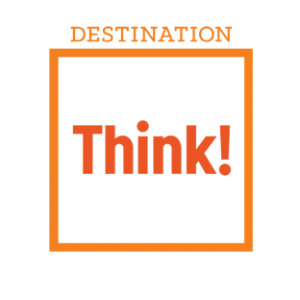» Next Entries
Category
Management
-
Management, Marketing, social media, Travel & Tourism
5 levels of social media sophistication at the DMO
04.23.12 | Permalink | 34 Comments
Imagine you had to start a DMO. Your DMO. You have been given the same budget and must start from scratch. Would your DMO look exactly the same as it does now? The same departments, same positions? The same budget allocations? The same marketing tactics?
The internet, and social media in particular, have completely changed tourism marketing. Forever. People might not talk on Facebook about which fabric softener they use or which soft drink they prefer, but everybody talks about their travels. Social media sophistication is crucial to modern marketing. Yet the tourism industry is way behind.
We have worked with dozens of DMOs around the world, ranging from very small to very large. And we have spoken to hundreds more. Based on our conversations and experiences we have identified the following levels for social media adoption and integration into the organization.
1) Ignoring social media
This level represents DMOs who are not active at all in social media. Social media is seen more as a threat than an opportunity.Characteristics you can find at this level are:
- Leadership that is very skeptical of social media (“Facebook is a waste of time,” “I don’t care what my old high school buddy had for dinner last night,” “Twitter is for young people,” etc.)
- Fear of negativity
- Restricted staff access to social networking sites through policies or technology
- Lack of an internal social media champion
- Lack of social media knowledge at marketing agencies
- Traditional marketing methods
- No budget for social media
Two years ago, there were many DMOs at this level, but by today most have moved on. Most DMOs that remain here are tied to very restrictive government policies.
2) Experimenting with social media
DMOs experiment with social media without a specific strategy through random tactics.Characteristics you can find at this level are:
- Leadership that is skeptical, does not know activities are happening, ignores them because of disinterest, allows it because an influential stakeholder asked questions, or is swamped dealing with politics
- Fear of negativity and overreaction when something “bad” happens
- Enthusiastic internal champions who have created rogue accounts but sometimes lack skills to properly execute. These people eventually leave the organization to properly grow their skills elsewhere
- Hit or miss results
- Chasing anything that is new and hot
- Lack of social media knowledge at marketing agencies
- No or very little budget
- No metrics
There are still a lot of DMOs operating at this level. It often takes a noticeable event to move them to the next level. This could be spurred by a social media success internally or by the DMO next door. For example, a rival’s viral YouTube video or growing number of Facebook fans.
3) Social media supporting marketing campaigns
Due to a lack of strategic knowledge, DMOs incorporate social media in paid, outbound marketing campaigns. Often this is an add-on to traditional marketing campaigns, such as a YouTube channel showing videos originally made for TV or using Facebook and Twitter to broadcast campaign messaging.Characteristics you can find at this level are:
- Leadership that realizes social media can be powerful but still relies/insists on traditional methods because they are more comfortable with them, or do not know how to measure and compare the difference in results
- Marketing agencies that reluctantly incorporate social into campaign strategies, often as an afterthought and/or without understanding social media principles
- Little integration or collaboration with members/partners/industry
- Heavy scheduling and approval processes for social media activity
- Broadcast-style communication in social media
- Viewing and communicating with fans and followers in a traditional outbound marketing way, such as a consumer email database
- Year-round efforts on Twitter, Facebook, etc., that lack strategic direction
- Social media black-outs when there is no campaign in market
- Frustrated and/or maxed-out staff who understand the potential of social media but are not heard by leadership and sometimes need/want more training
- Often staff skilled in social media leave the organization out of frustration
- Budget that is a small portion of marketing campaigns
- Lack of appropriate metrics, with success often measured either by big numbers (# of fans/followers) or a campaign’s level of creativity
Most DMOs operate at this level, sometimes with some additional effort to keep Facebook and Twitter going year-round. Often the level of success depends on the sophistication of one or two staff members.
DMOs at this level want to succeed but cannot break out of the traditional way of doing business. Getting to level four is usually achieved by having a strong social media success as part of a bigger initiative or having an epiphany that social requires a different way of thinking. Usually, level two experiments continue alongside level three activity.
4) Following a social media strategy
This level is typified by a DMO having a social media strategy in place or having social media integrated into its marketing strategy. The DMO still believes that it is in full control of the destination brand.Characteristics you can find at this level are:
- Leadership that understands social media and has given it dedicated resources
- Marketing campaigns that have social at the core
- Agencies in place that are dedicated to social or a digital agency that (really) gets social
- Social strategies in place tied to marketing goals and objectives
- Stronger alignment/integration with members/partners/industry and other stakeholders
- A move from mass to niche marketing
- Activities that are measured and adjusted in real time
- Staff that is trained in social media
- Empowered staff that is allowed and encouraged to participate as a DMO professional in social networks
- Social media monitoring and engagement that is in collaboration with members/partners/industry
- Social media that is incorporated in customer service
- Relaxed social media access policies and limited approvals for posting content
- Crisis plan in place
- Systematic experimentation that is part of the strategy
- Dedicated staff and budget for social media
Leading DMOs have entered this level. Over the next few years we expect a rush of DMOs moving here. DMOs that enter level four first are the ones with less restraining operating environments (such as funding) with innovative leaders and marketing managers.
5) Embracing the social business model
The level five social business recognizes that the destination’s story and reputation are based on visitors’ experiences at every touch point during their trips (see point 1 in “Top 5 Wrong Assumptions in Destination Marketing”). This DMO knows and accepts that it is no longer in control of the destination story. It recognizes and acts on the need to collaborate closely with its industry, residents, influencers and visitors, and that it must change the way success is measured.
The level five DMO starts with the core of the passions that make a destination relevant and leads all partners that have an impact on those experiences. The sole focus is on delivering outstanding visitor experiences that are unique to the destination, and then making it easy for visitors to share these experiences in their own voices.
As painful as it may be, the DMO re-organizes, ending much of its old way of doing business. Staff is re-trained and assigned to new activities.
Characteristics you can find at this level are:
- Leadership that understands that business models from 15 years ago must change and is willing to undertake the pain of changing the organization
- Relentless focus on the consumer
- Majority of marketing resources are allocated to digital
- A shift from destination marketing to destination management, where the customer experience is seen as the primary way to build brand
- Marketing strategies that are a collaborative effort between the DMO, industry, residents, passionate consumers and other stakeholders
- A move from mass marketing to niche marketing
- Culture of collaboration, internally as well as with members/partners/industry and even consumers
- Flattened organizational hierarchy to increase efficiency and speed needed to respond and adjust quickly
- Lean processes
- Staff that is trained, empowered and supported to make decisions without requiring lengthy approvals or spending time in meetings designed by management to control every aspect of every tactic
We’re not aware of any DMOs at level five. We have spoken to many DMO executives who know they need to get here and want to get here. Often, their funding models or destination-specific politics stand in the way.
The DMO closest to a level five we are familiar with is Visit Sørlandet in Southern Norway. As a newly created regional DMO, this organization quickly realized it would be impossible to build a Southern Norway brand the traditional way. By creating a strategy based on collaborating with local DMOs and industry members to improve the visitor experience and elevate the collective digital marketing efforts, Visit Sørlandet is building it’s brand through every touchpoint while growing repeat visitation and encouraging word-of-mouth.
For many DMOs that have not reached level four, level five may seem pie in the sky. But the further you move your DMO through the levels, the more you realize just how much the world has changed and the true impact this has. Once you enter level four, you can see level five. It is no longer pie in the sky. It is tomorrow.
At what level is your DMO?
Your DMO’s current level is not a sign of success or failure. Every DMO is different. Politics and funding models have a big impact. So does the size and scope of a DMO. A country DMO is different from a city DMO. This affects specific marketing strategies and tactics.It is also not a race. It is a process that organizations need to go through. Some might skip a step. For others, the levels could overlap. But in order for DMOs to stay relevant and effective, they need to climb up.
We have worked with DMOs in all shapes and sizes at every level of this process. We enjoy helping DMOs make the climb.
We have conducted audits, started Facebook pages, trained staff, implemented social media as part of bigger campaigns, run social campaigns, created strategies, helped to define entire business plans centered around social principles and much more.
Inventing the future
Alan Kay, the inventor of the GUI and object-oriented programming once said, “The best way to predict the future is to invent it.” Instead of all DMOs trying to invent level 5 independently, we think the best future is that we all invent it together and collectively stay relevant. Please share your thoughts in the comments.As always, thanks for all my Think! coworkers for their contributions in creating this post
-
Management, personal, Think! Social Media
Think! Amsterdam
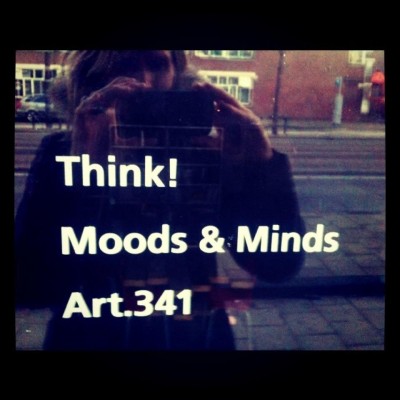
Today is a special day for me. The picture above is the entrance to our Amsterdam office taken by our new Thinkling Isabel. We’re starting our European operations today and I’m going to be ‘back home’ working with Isabel for the next few months.
We’ve already received a lot of positive reactions from Dutch and European DMO and tourism businesses. We’re looking forward to collaborating with the tourism industry in Europe to implement modern marketing strategies.
If you want to learn more, please contact Isabel or myself and we’d be happy to tell you all about our services.
william at thinksocialmedia.com
isabel at thinksocialmedia.com -
Internet, leadership, Management, Marketing, Travel & Tourism
Top 5 Wrong Assumptions in Destination Marketing
01.09.12 | Permalink | 69 Comments1) Building a destination brand through advertising
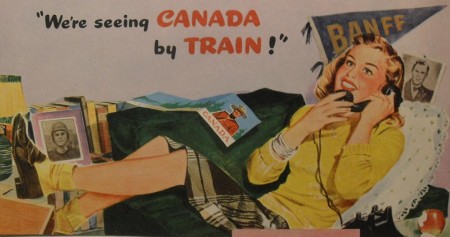
You can’t. A destination brand is:
- The sum of experiences of a traveler during a trip (but not all experiences are equal)
- The sum of all stories somebody has hears about a destination (but not all sources are equally credible)
Ten years ago, your TV ads, brochures and other forms of marketing collateral contributed a sizeable portion of the stories people heard about a destination. Not anymore. People telling other people, aided by new forms of communication (including social media but not exclusively) is now dominant and has make brand advertising hopelessly inefficient.
Ensuring your destination has quality experiences, getting your operators up-to-speed in modern marketing and actively managing your destination’s reputation in social media, especially in niche communities is how you build and manage a destination brand.
2) People still like paper guides/call centers/newspapers/magazines/consumer shows/travel agents/etc.
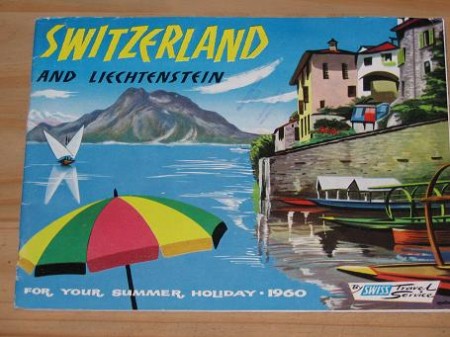
Yes they do. But is it the most effective way for you to get your stories told?
I get it. It used to be so succesfull. You’re still proud of the results from 1998. And it’s really hard to stop doing something. Staff will be effected and change management in an organization is often messy.
But lets get real. Most people have moved on. The biggest bang for your buck lays elsewhere and we both know it.
Stop making excuses, take close and hard look at your activities (budget + people) and stop doing the things that have become inefficient or ineffective.
3) Operating a reservation system will generate extra revenue

It probably won’t. And if it does, it’s going to take a lot of hard work against stiff competition.
I know it’s tempting. There’s the potential for extra revenue and your hotels are putting on the pressure to fill their rooms now instead of focussing on the long term. It’s also something tangible to measure and the technology is so easy now. And cheap.
But consumers just don’t think of a DMO website as a place to transact. They have a gazillion options to book. And usually at a much better rate than the DMO will ever be able to offer.
Making a booking system produce results is hard work.
When you choose to operate your own reservation system where your accommodation operators give you specific rates and inventory, you also need people to manage this process. That means chasing operators for rates and inventory, sending out commission cheques, chasing operators for money and dealing with customer service issues.
You’ll also need people who stay on top of your website and the conversion funnels. What advertising drives bookings? Where do people drop off in the funnel? What do you need to tweak to increase your conversion rate?
I’m not saying offering bookings is a bad idea, especially not if you’re a city DMO. An aggregator like JackRabbit is a good option add booking capabilities to your website without the operational overhead for example.
An even better option is if you have a way to differentiate yourself from online travel agents by creating value added packages online travel agents can’t offer and target these to niche audiences.
4) Processes and organizational structures from the 90’s still work today
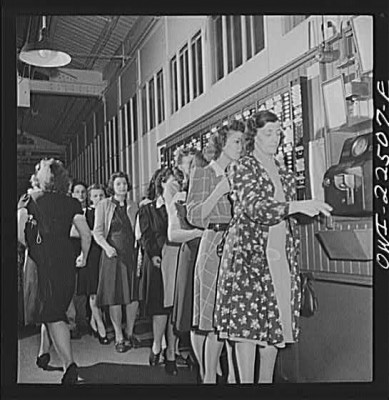
They don’t. The workplace of the 90’s was very much a leftover from the industrial age.
Let’s see what has changed over the last 15 years. Technology and the internet has turned travel planning and booking up-side-down. Everybody knows this, but most DMO’s just added some form of online unit or department in their structure and left it at that.
And there is more! Technology has also completely changed the way people work with new productivity and collaboration tools. Technology is becoming ubiquitous. Cloud computing allows you to outsource pretty much everything and access your data from anywhere. People stay connected through mobile devices and take work home on their laptops while Social Media has completely blurred the line between professional and private life.
The industrial age is over. All of the above has completely changed the way new generations think about the workplace. Corporate structures, hours of work, roles and responsibilities, staff retention all has to be re-thought. Just read Don Tapscott and Charlene Li.
5) The one stop agency of record is still effective
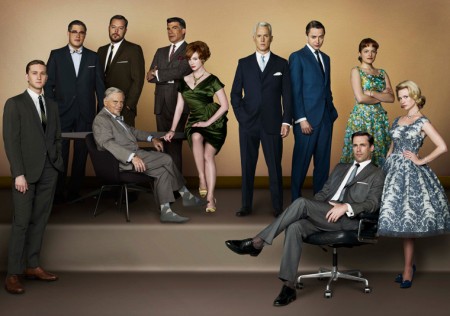
It usually isn’t. More and more DMO’s are challenged with their agencies of record based on what I hear at conferences.
From my perspective, the reason why most traditional agencies are still having a hard time with digital and are often completely clueless about social is because their culture and business model is based on traditional advertising principles.
In traditional advertising, you only have one shot at getting it right. You buy the media, produce the communication pieces and let it ride. An outcome of that is getting the creative right the first time is really important. As a result, right brain creatives run traditional agencies.
In digital marketing, the creative is still important but you should spent more time after launch by looking at the data, and keep iterating the tactics to keep perfecting it. Data and real-time analysis is part of a digital agencies culture. That’s a fundamental difference.
In social media, on top of digital marketing principles, you also need to humanize the message and open up your brand for consumer input. That’s often just too much to ask.
The result is that in most cases, DMO’s need to go best-of-breed and hire multiple, specialized agencies and contractors. With the new collaboration tools, it’s much easier to manage these days. We experience this with the increased number of RFPs out there specific to social media. Maybe a new ‘agency of record’ model will emerge at some point but that will take some time.
A one-stop-shop is definitely easier to manage on an executive level. Only one RFP to run, it simplifies managing the relationship (only one person to have lunch with or yell at) and streamlines back-office accounting processes. If you still want to go one-stop-shop, look for a digital agency that also does traditional instead of a traditional agency that also does digital.
Note: I understand that especially the first and last point on this list can be perceived as a pitch for my company. The reality is that this is exactly why I joined Think! in the first place. To help DMOs innovate and break through some of the conventional wisdom out there.
-
leadership, Management, Marketing, social media, Travel & Tourism
Tapping into influencers passion
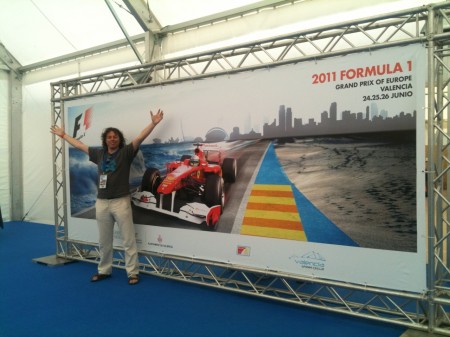
Most people don’t know I’m a huge F1 (Formula One) fan. I watch every qualifying session and every race, ever time. I’m depressed in the off-season.
It started when I was a teenager. On Sundays, me and my Mom would always watch the races together. I don’t remember how it started but it was our thing and it has always stayed with me. Even after I left Europe and moved to Canada where F1 fans are few and far between.
I frequently get asked to speak about tourism marketing at places around the world. It’s very flattering that people are interested in what I think and have to say. In the tourism marketing community, I suppose I’m some sort of influencer. Unfortunately I can’t make it everywhere. I try, but I have to pick and choose.
I met Joantxo Llantada from the Valencia Region Tourist Board at the ENTER conference this year. I presented a case study about our marketing for the 2010 games at Tourism BC and he presented a fascinating case study about his F1 blogtrip. So I told him I was an F1 fan.
A few months later he sent me this tweet.

The decision was very, very, very easy. Come to Valencia to do a presentation and visit the F1 race? Uh… yeah!
Connect with somebody’s passion and they’re easily convinced. Joantxo uses the F1 to bring influencers together for a conference and a blog trip. For 4 days we explored the (awesome) city of Valencia, had great food and inspiring conversations. An awesome mix of the biggest bloggers, journalists, social media marketers and digital professionals. From young to old and from all over.
It was educational and inspirational. More about that in the next few days.
-
leadership, Management
From Terrorism to Tourism
William Ury is a professional negotiator has been involved in resolving some of the toughest conflicts.
In his TEDx presentation he poses a solution to the Middle East conflict. Ury and his team created Abraham’s Path, a route of walking and cultural tourism which follows the footsteps of Abraham or Ibrahim through the Middle East.
By retracing this journey, the Masar (‘Path’ in Arabic) provides a place of meeting and connection for people of all faiths and cultures, inviting us to remember our common origins, to respect our cultural differences, and to recognize our shared humanity. The Masar also serves as a catalyst for sustainable tourism and economic development; a platform for the energy and idealism of young people; and a focus for positive media highlighting the rich culture and hospitable people of the Middle East.Never though tourism could be the solution for a problem as big as that.
-
Management, social media, Think! Social Media
Research: Social Media Boutiques are Winning Deals Over Traditional Digital Agencies
Interesting post from Jeremiah Owyang today about his research findings that Social Media Boutiques are Winning Deals Over Traditional Digital Agencies. And although I think the line between traditional, digital and social media agencies is a lot more blurred than the post suggests, it’s an interesting read.
Jeremiah’s research concludes that especially the clients who are more advanced in social media leave traditional agencies for boutique agencies for the following reasons:
- Offer a specialized skillset in new media and social business that traditional agencies may not offer
- Often offer change management within the corporations –traditional agencies have a reputation for layering social media on top of existing campaigns.
- Rather than be ‘campaign’ focused, instead are more long term focused such as building a community with customers for the long term.
- Are ready to roll up sleeves to assist with deeper customer engagement –not just deploy traditional advertising (one of the top spends in social business)
- Are more agile within smaller teams and can quickly maneuver as the technology space changes over time.
- Fundamentally are geared to measure differently around engagement, and what it means –not just top line and bottom line measurements
I would add to that list that ‘traditional’ agencies often lack the culture necessary to really make social media (or digital for that matter) work.
<plug>
And at Think! Social Media we can add a specialized focus on the travel, tourism and hospitality industry as well. This industry isn’t easy to figure out and you need to understand the specifics in order to deliver real value to your clients.
</plug>
Jeremiah also identifies some weaknesses boutique agencies can have:
Despite their strengths, Social Media Boutiques have weakenesses. They are often unable to scale as engagement is difficult to roll out to all product units and around the globe, are quickly finding that traditional agencies are catching up by training staff (see how Edelman has an internal black belt education program) and often lack the ability to achieve an integrated marketing approach.At Think! we’re already rapidly expanding to offer full digital services with integrated social media. We’re achieving this though great partnerships (including ‘traditional’ agencies) and by acquiring new talent, here in Vancouver, but also around the world.
It’s safe to say that 2011 will be very exciting.
-
leadership, Management
Must see presentations #5: Itay Talgam: Lead like the great conductors
Don’t tell people how to do things, tell them what to do and let them surprise you with their results.
— George S. PattonI believe that great leaders are passionate people who set a vision and inspire teams and individuals who’ve been given the space to make the vision a reality.
Itay Talgam delivered a great presentation at TED where he uses different styles of symphony conductors to deliver a powerful message about how to lead talented individuals. Very insightful.
-
leadership, Management, Marketing, social media, Travel & Tourism
To be Authentic
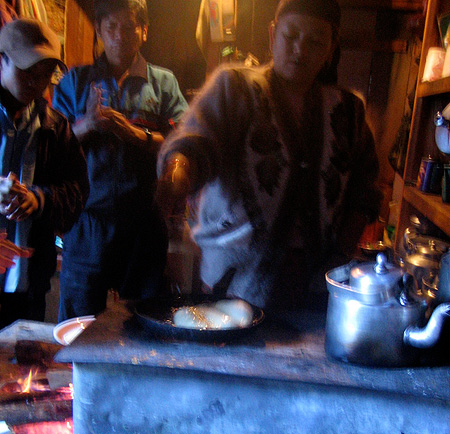
The best meal I ever had wasn’t at a fancy restaurant, made by a celebrity chef, with an award winning wine. It was at a small B&B in Chame, Nepal. Because it was freezing cold we huddled around the kitchen fire where dinner was being made.
The whole family helped out. Kids were preparing veggies, the husband was making the dough for bread and mom was in charge of everything and everybody. Friends and family came and went.
That Dal Bhat was the best meal I’ve ever had. Because it was an authentic experience.
The word authentic keeps popping up lately. Tourists increasingly want authentic experiences. In social media, you need to be authentic to be successful. To be authentic is to be real and genuine.
Simon Sinek, who writes fantastic stuff about leadership by the way, talks about imperfection and authenticity in this blog post.
Perfection comes out of molds or off assembly lines. Things made by nature or by hand are imperfect. It is their flaws that make these objects unlike any other of their kind. It is their imperfections that make these things unique and beautiful.That’s why so much marketing is junk. People try to make it too perfect and as a result, the message isn’t authentic anymore. It’s like most marketing comes from the same assembly line. Killed by process, approvals and egos.
Imperfection is not always a bad thing, when it creates authenticity. Keep this in mind for your business. Don’t mold it like everybody else’s (but don’t use your bathroom as a place for imperfection). Give staff some room to be themselves so they don’t sound like robots and give them the ability to think on their feet and give customers personalized attention.
And in social media, authenticity is a must. Don’t always try to craft the perfect message. Be yourself and try to have meaningful relationships with your network. Just don’t be stupid. And when you make a mistake, apologize.
I’ll finish by quoting Simon one more time.
Great leaders don’t try to be perfect, they try to be themselves. And that’s what makes them great. -
Internet, Management, Marketing, social media, Travel & Tourism
Sheraton Tripadvisor Cards
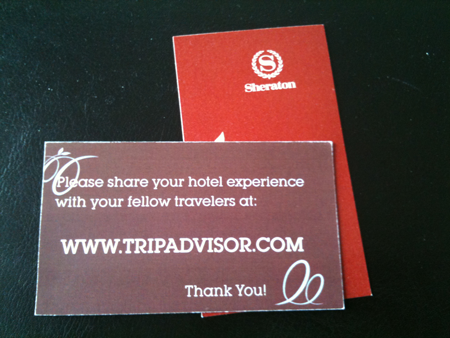
A few weeks ago I spoke about our online marketing activities during the 2010 Olympics in Seattle. I stayed in the Sheraton; great hotel. They left a really nice note in my room, including this card to encourage me to share my experience on Tripadvisor. Simple and effective.
-
Management, Marketing, social media
Passion will win (thank goodness)
In the age of social media; passion wins. Because passion and caring about your customer cannot be faked anymore.
People who are passionate about their customers will deliver better products and experiences. Better products and experiences generates positive word-of-mouth. And in the age of social networks, word-of-mouth is the new branding.
People who are passionate about their profession have the opportunity to create a network of fans in social media. And in the age of social networks, your network of fans is the new resume.
» Next Entries

